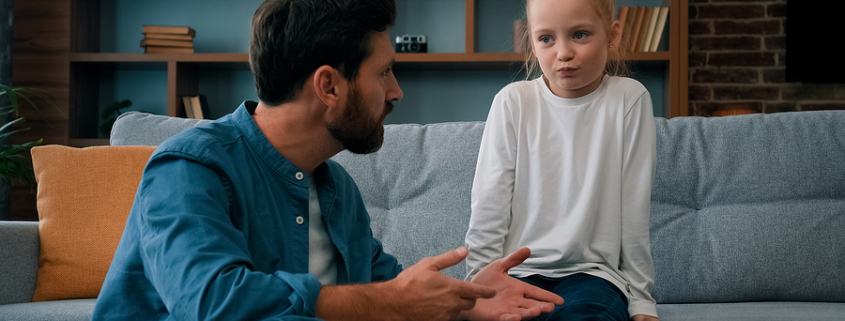How to Support Your Children During Divorce
Divorce is a difficult experience for any couple, especially one with children. Even if divorce is the best path forward for you and your partner, it can be a very challenging experience for children to navigate. It’s important to support your children throughout the process, but how do you do that? Let’s discuss how to best support your child during divorce.
How do children react to divorce?
Children react differently to divorce depending on their age, personality, and specific family circumstances. Some children feel very guilty and blame themselves, while others may start acting out and experiencing difficulties at school.
Younger children tend to not understand the situation and often experience confusion and sadness. Older children often experience worry and guilt, while teenagers may become angry, withdrawn, and not want to talk about the situation.
It’s important to support your child, regardless of how they react. Here are some simple steps you can take to help your children navigate this complicated time in their young lives.
Tips for supporting your child during a divorce
- Communicate honestly: Divorce is very confusing for kids. It’s important to communicate openly and honestly with your children. Explain the situation to them as clearly and accurately as you can, and encourage their questions.
- Create a stable environment: Stability, consistency, and routines are important for all children, especially during a major life event like a divorce. Do your best to maintain their original routine and keep their surroundings familiar.
- Offer reassurance: Reassure your child that both you and their other parent love them. Make sure you communicate that your love for your child is entirely separate from your divorce. You may feel this goes without saying, but kids often need to hear it.
- Encourage time spent with the other parent: Don’t put your child in a position where they feel like they can’t spend time with their other parent. Support their contact, whether it’s visiting in person, a phone call, or whatever works best.
- Inform teachers if necessary: If you have school-age children, consider discussing the situation with their teachers. This helps the teacher look out for and support your child as they navigate this situation.
- Lead by example: Whatever feelings you may harbor towards your ex, refrain from sharing these thoughts with your child. Set a good example and vent your frustrations elsewhere.
- Consider counseling: Counselors and therapists with experience in divorce are amazing resources. Don’t be afraid to reach out to seek help for your child – a counselor can provide strategies for navigating this situation with your kids.
Contact us to discuss the complexities of divorce
At Lonich Patton Ehrlich Policastri, we take care of the legal side of divorce proceedings, leaving you with more time for what’s really important. With more than 100 years of combined litigation experience, you can trust our team of divorce litigation specialists to negotiate on your behalf and ensure you receive what you are entitled to during divorce proceedings.
Questions? Discuss your situation with a divorce litigation expert by calling 408-553-0801 or setting up a free consultation today.
Disclaimer: This article does not constitute a guarantee, warranty, or prediction regarding the outcome of your legal matter.




